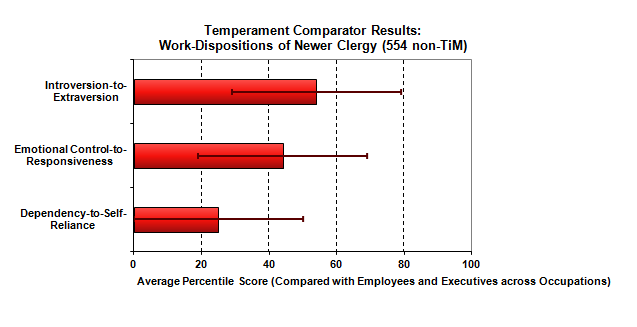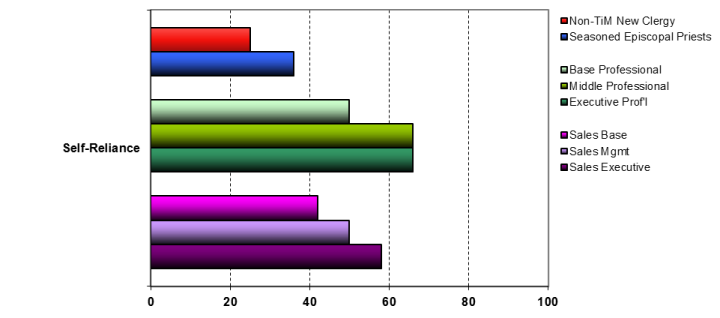One powerful force that clergy bring to their ministry and leadership is personality. Qualities of personality shape how the work of ministry and leadership gets done (or doesn’t get done!).
“Personality” is a word that carries a lot of freight. We think of personality types: people with “big” or “small” personalities, personality disorders, and strengths and weaknesses in personality. The word “personality” is often used to point to a person’s qualities and ways-of-being that are relatively stable and consistent enough to give a recognizable description of someone. “He is gregarious.” “She is conscientious.” “He is quiet and reserved.” “She has this knack of getting along with anybody.” These qualities and ways-of-being become roadmaps for how individuals perceive and interact with the world.
But too often, “personality” is considered overly fixed by genetics or upbringing. People’s enduring qualities and habits are also shaped by the institutions and groups in which they live and work. Thus, we prefer to talk about “dispositions” and “ways-of-being” as descriptions of these relatively stable and consistent qualities that shape how people approach and interact with the world. Clergy may be disposed to think and act in particular ways in their ministry and leadership due to a mix of their own personal habits and the ways-of-being that are desired and expected by the institution of the Church.
So, what dispositions and ways-of-being do clergy bring to their ministry and leadership?
The Temperament Comparator (TC) is a work-dispositions inventory created by Melany Baehr1 over fifty years ago as part of a set of assessments for use in human resources and career placement. The TC reveals three big sets of work-related dispositions: Introversion-to-Extraversion, Emotional Control-to-Responsiveness, and Group-Dependency-to-Self-Reliance.
The chart above shows the average percentile scores for recently ordained clergy on these three work-related dispositions. Percentile scores are based on thousands of workers, managers, and executives across a wide variety of occupations in professional, manufacturing, service, sales, and technical sectors.
As you can see, in general there is no set “clergy personality” in terms of Introversion-to-Extraversion or Emotional Control-to-Responsiveness—newer pastors and priests score across a wide range, with the average landing between the 45th and 55th percentiles. But there does seem to be one distinct type of clergy disposition: clergy have a strong tendency to be more Dependent than Self-Reliant, and rarely score in the highly Self-Reliant range.
The subsequent articles show how these work-dispositions appear among recently ordained pastors and priests, how each set of dispositions can affect how clergy approach their ministry and leadership, and how these new clergy compare to more seasoned clergy as well as to workers, managers, and executives in professional and sales occupations.
Continue Reading . . .
- Part 1: Introverted or Extraverted? Does It Matter?
- Part 2: How Do Clergy Engage Emotions?
- Part 3: Is Self-Reliance a Dirty Word for Clergy and the Church?
1 Melany Baehr, Temperament Comparator: Form S, Interpretation and Research Manual (Minneapolis, MN: Reid London House, 1996).






